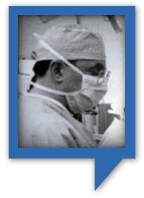For those who have ever wondered if Malcolm Gladwell is nuts, wonder no more.
“I honestly think that…the overwhelming majority of college grads, given the opportunity, could be better-than-average cardiac surgeons,” said pop author Gladwell in a discussion with David Epstein. Gladwell qualified his astonishing statement by stipulating that it could only occur with 10,000 hours of deliberate, highly structured practice by very motivated people.
Epstein, author of “The Sports Gene,” said cardiac surgery is a psychomotor skill, but challenged Gladwell to produce some evidence to support his opinion regarding cardiac surgeons. Instead of evidence, Gladwell replied, “I have a very low opinion of the difficulty of cardiac surgery” and equated the complexity of cardiac surgery with that of driving a car.
If you don’t believe me, watch a few minutes of this video, which I have cued to the start of his comments about cardiac surgery.
Both Gladwell and Epstein are somewhat off base. While there is no question that doing operations on the heart requires psychomotor skills, there is much more to it.
Like all procedural specialties, cardiac surgery involves decisions such as deciding who would benefit from an operation, when should the operation be done, who would be better served without an operation, and what should be done if an unexpected finding or a complication occurs either during surgery or in the postoperative period.
Equating driving a car with cardiac surgery is absurd. Most of the time, driving does not require intense concentration. Nearly everyone has had the experience of driving a car on a highway for several miles and realizing that they have no recollection of the scenery or any other vehicles that may have passed going the other way.
Not so with cardiac surgeons, who do not have the luxury of “zoning out.”
The “10,000 hours” rule has been challenged by many including David Epstein in his book. If you don’t have time to read that book, here is a link to a blog called “The Science of Sport” by Ross Tucker, a PhD, in exercise physiology. Do not be put off by the length of the piece, which is worth the few minutes spent reading it. He explains how the original research on the topic by psychologist Anders Ericsson was flawed.
And here’s an article from Salon called “Ditch the 10,000 hour rule!” that says approaches to learning other than massed practice yield better results.
Finally if hard work and time expended is all it takes to be an expert, my tennis game should be a lot better than it is.
One true statement Gladwell made in the video was, “This is going to offend all medical doctors in the room.” But he should have added that it would also offend anyone who is a rational thinker.
Skeptical Scalpel is a retired surgeon and was a surgical department chairman and residency program director for many years. He is board-certified in general surgery and critical care and has re-certified in both several times. He blogs at SkepticalScalpel.blogspot.com and tweets as @SkepticScalpel. His blog averages over 1400 page views per day, and he has over 10,600 followers on Twitter.


 SkepticalScalpel
SkepticalScalpel